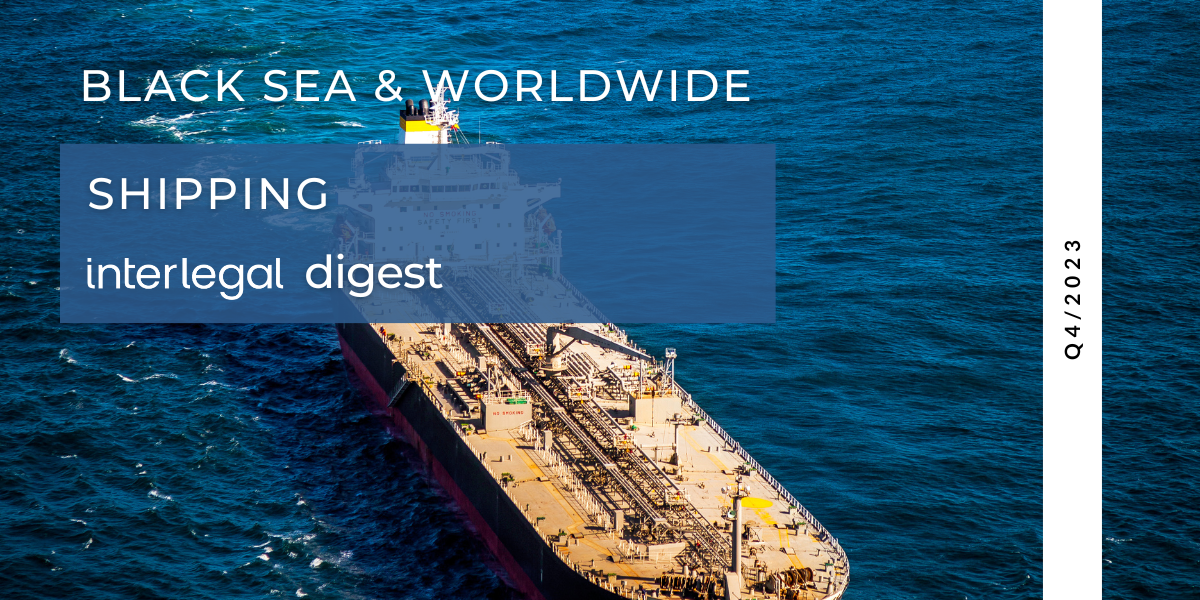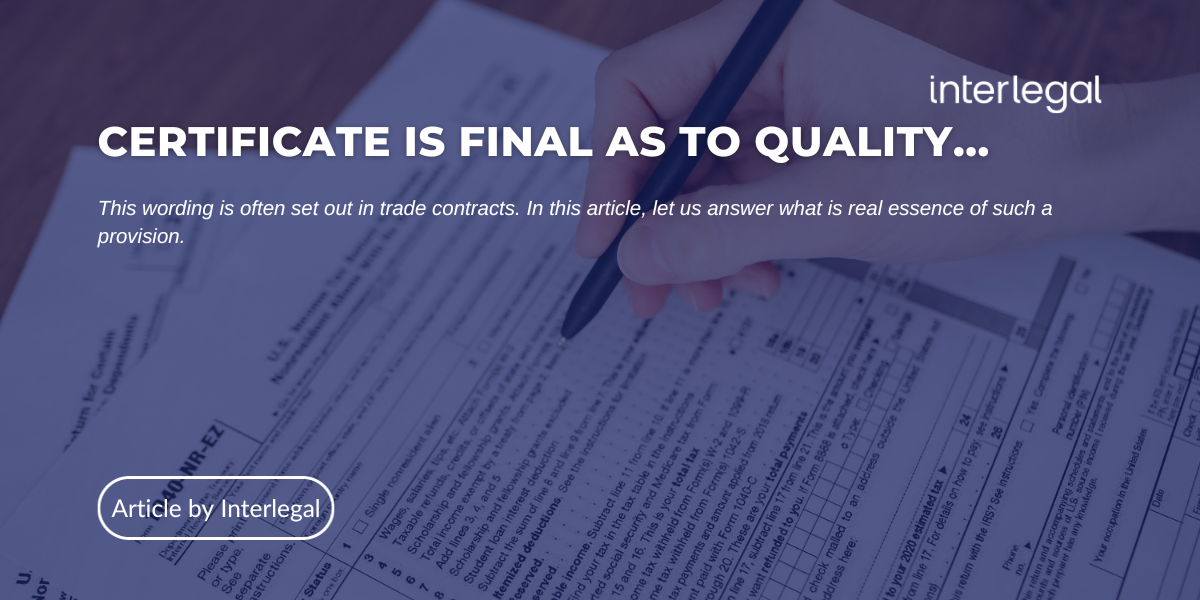What errors should be avoided while entering into CIF contracts?
15 December, 2023
14

We have already noted that CIF delivery basis is one of the eleven international trade terms (Incoterms) created by the International Chamber of Commerce in 1936. CIF means Cost, Insurance and Freight. Furthermore, it means that the seller shall be deemed as having fulfilled its delivery obligations when the goods insured thereby are stowed on board the vessel for goods delivery to the port of destination.
Trade contracts often apply such basis of delivery, so from time to time we clarify the list of the parties’ sore spots that should be taken into account while entering into CIF contracts.
Incorrectly chosen transport
CIF shipping rule is developed for sea and river transportation, i.e. usage of this term for other transport means (road, rail, air) will most likely cause misunderstandings and potential disputes.
The moment of transferring title
As you know, the moment of transferring title on the goods is not defined in the Incoterms rules. The parties should agree on this condition of the contract independently. But the moments of the transferring risks, the occurrence of expenditure obligations and right of ownership do not always coincide. It is important that the terms of sale and purchase contract regarding the moment of changing status of the goods, rights and obligations of the seller and the buyer are transparent for the contractors involved in organization of the transport process (agents, forwarders, carriers, etc.). Otherwise, if something unforeseen happens to the goods, disputes may arise between the parties both regarding the goods themselves and the relevant transportation costs.
Disputes arising with shipowners in respect of demurrage
When trading under FOB terms, issues of marine demurrage can sometimes concern the seller at the port of loading and only as a sort of recourse from the buyer as the vessel charterer. In such case, the issues of calculating demurrage are regulated by provisions of the sale and purchase contract. In case of deliveries on CIF terms, settlement of relations with the shipowner both at the port of loading and at the port of discharge shall be treated as a direct duty of the seller/exporter as a party to the sea transportation contract. Additionally, it is very important to agree demurrage amount both in the contract of carriage and in the sale and purchase contract.
Control over cargo (quantity and quality)
The buyer has an option to additionally control over cargo quality and quantity at the port of discharge, which can significantly complicate entry into of the contract. When trading on CIF terms, final weight of the goods is determined mostly at the port of discharge: such an indicator can differ significantly from initial weight at the port of loading. Weighing methods at the port of loading and discharged should be agreed upon. In case of deviations in quality indicators from the contractual ones, buyers can take an uncompromising position upon the issue of providing a discount and in fact may blackmail the seller by rejecting to accept the goods, etc. The issue of finality and methods of determining quality should be set out in the contract very carefully.
Lack of information
Ignorance and inability to promptly respond to specifications of local legislation in the country of destination often cause cancellation of the contract or awake claims from both the buyer and the shipowner (cargo and/or ship arrest in the port, etc.). If the exporter has no branch or representative office in the country of destination, it is completely dependent on the counteragents’ good faith. Speaking about countries with a high level of corruption and other risks, contract performance can turn into a nightmare. An important condition for trade on CIF terms is to know both the nuances of local legislation of the country of destination and to understand intricacies of the local business culture and traditions.
Freight
Due to high volatility of the freight market, it is uneasy to predict the freight rate and take it into account in cost of the goods on CIF terms within the required scope. Also, when exporting from Ukraine, especially in the peak season, as well as with regards to military realities, it is sometimes difficult just to find a vessel of the required tonnage with the appropriate specification.
Insurance events
Insurance events related to cargo damage usually do not raise questions. However, in case of maritime incidents (general average, ship collision, etc.), professionalism, promptness and rating of the insurer, as well as prompt engagement of lawyers, can be crucial in reducing losses of the parties. Savings on insurance indemnities and legal service costs often result in losses commensurate with the contract price.
In future, while entering into CIF contracts, we recommend you consider the aforesaid sore spots very carefully, because they often cause large losses. In case of any doubt, Interlegal law team is always ready to help you.























































